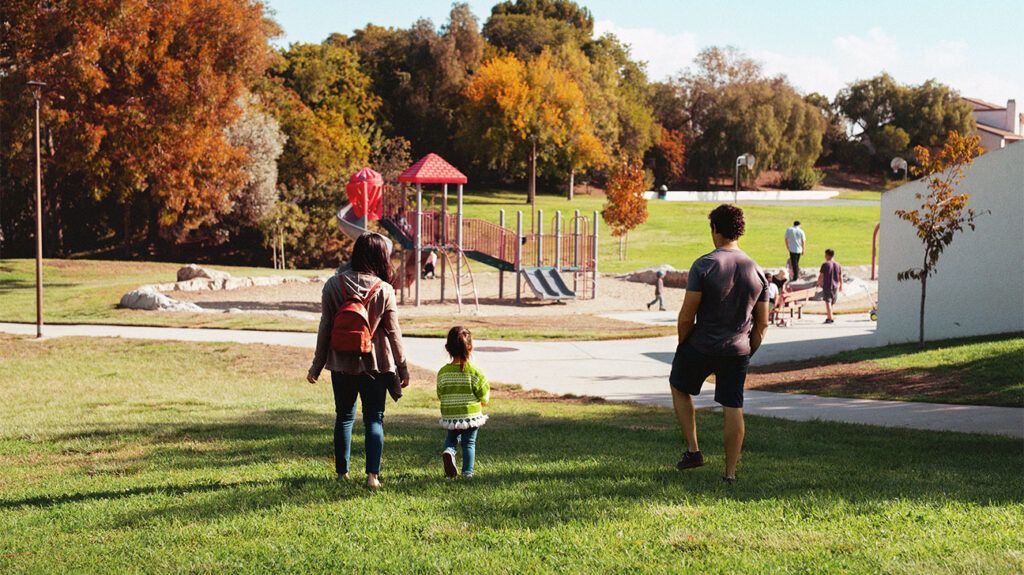Disinhibited social engagement disorder is an attachment disorder that causes a child to be over-friendly or overfamiliar around people they do not know, with a lack of wariness around strangers.
Disinhibited social engagement disorder (DSED) is an attachment disorder and mental health disorder that can begin in early childhood. It causes a lack of inhibition around strangers.
Children with DSED do not display typical verbal and physical boundaries around strangers and may act inappropriately. They may hug an adult they do not know or be willing to go off with a stranger.
Children with DSED have an absence of wariness around strangers that goes against culturally accepted norms. DSED is a disorder that can stem from exposure to trauma or a stressful life event.
This article looks at DSED in children, how it may present in later life, diagnosis, and treatment.

DSED is a type of attachment disorder. An attachment disorder is a social response that is significantly inappropriate for the developmental age of a child and occurs in most social situations.
A child with DSED has a lack of inhibition and wariness around strangers. A child may willingly go off with a stranger, hug or kiss a stranger, or tell a stranger inappropriate information.
The cause of DSED is unclear, but certain factors related to neglect and deprivation
- physical, emotional, or sexual abuse or neglect
- danger at home
- food insecurity
- trauma or violence
Learn more about recognizing the signs of child abuse.
Symptoms of DSED usually first occur in young children and sometimes occur in infants.
Children with DSED may display the following symptoms and characteristics:
- wandering away from a parent or caregiver
- lacking inhibition, fear, or shyness when meeting strangers
- being willing to go off with a stranger with no fear or anxiety over leaving a caregiver
- not asking permission from a caregiver to approach a stranger
- being overfamiliar or over-friendly with strangers, such as hugging them or climbing onto their lap
- displaying impulsive behavior and increased levels of hyperactivity
- having decreased motor skills and social functioning
To diagnose DSED, a doctor may assess symptoms and take a physical exam to rule out other potential conditions.
A doctor may suggest a psychological assessment if they suspect DSED, which may include:
- talking with a mental health professional to assess mental state and mood
- taking a mental health history
- filling out questionnaires
- involving family members or caregivers for their perspective
A doctor will then check the findings of these assessments against the criteria for DSED in the Diagnostic and Statistical Manual of Mental Disorders, 5th edition, text revision (DSM-5-TR) in order to make a diagnosis.
Although there is currently no cure for DSED, early diagnosis and treatment may help manage symptoms.
Psychotherapy is the most common treatment for DSED and may involve the child and caregivers. Therapies for DSED may also include:
- art therapy
- play therapy
- social skills training
- family therapy
- parent or caregiver training
A
By the time people reach adolescence, symptoms of DSED usually improve or go away.
Experts consider DSED a childhood disorder that usually improves or goes away by the time people reach adolescence.
There is little evidence suggesting that DSED symptoms continue in adulthood, although the long-term effects of DSED are unclear.
A
People who had DSED signs in early childhood were more likely to have poorer functioning in the following areas at 12 years old:
- family relationships
- peer relationships
- academic performance
- physical health
- mental health
- substance use
- risk-taking behavior
Ways to support a child with DSED
- Providing stability: Consistent and reliable care is important for a child with DSED.
- Setting clear rules and expectations: Caregivers can let a child know what they expect of them and clearly set out rules, boundaries, and consequences and be consistent with them.
- Developing routines and consistency: Create routines that a child can follow each day to help develop trust and stability.
This section answers some frequently asked questions about disinhibited social engagement disorder.
What are the DSM 5 criteria for disinhibited social engagement disorder?
According to a 2018 article, the DSM-5 criteria for diagnosing DSED include the following:
Criteria A states a child must display at least two of the following:
- a lack of inhibition around unfamiliar adults
- a willingness to go off with an unfamiliar adult and/or not check back with a caregiver in an unfamiliar environment
- being too verbally or physically close to an unfamiliar adult
Criteria B states that disinhibited behavior must include social disinhibition, not just impulsivity.
Criteria C states that the child has to have experienced extremely insufficient care or trauma, such as the neglect of basic emotional needs or constantly changing caregivers without the opportunity to form a strong attachment.
What is the difference between disinhibited social engagement disorder and reactive attachment disorder?
Children with reactive attachment disorder (RAD) have problems forming emotional attachments to others and may have an extreme reaction to physical closeness with a caregiver, such as being hugged.
Conversely, children with disinhibited social engagement disorder may have a lack of wariness around strangers and be over-friendly or overfamiliar around people they do not know.
Children with RAD
RAD also occurs in early childhood and is due to maltreatment or neglect.
DSED is a mental health condition and attachment disorder. It usually affects young children and causes them to be overly familiar with strangers.
Treatment may help manage symptoms and may include psychotherapy, play therapy, and family therapy.
